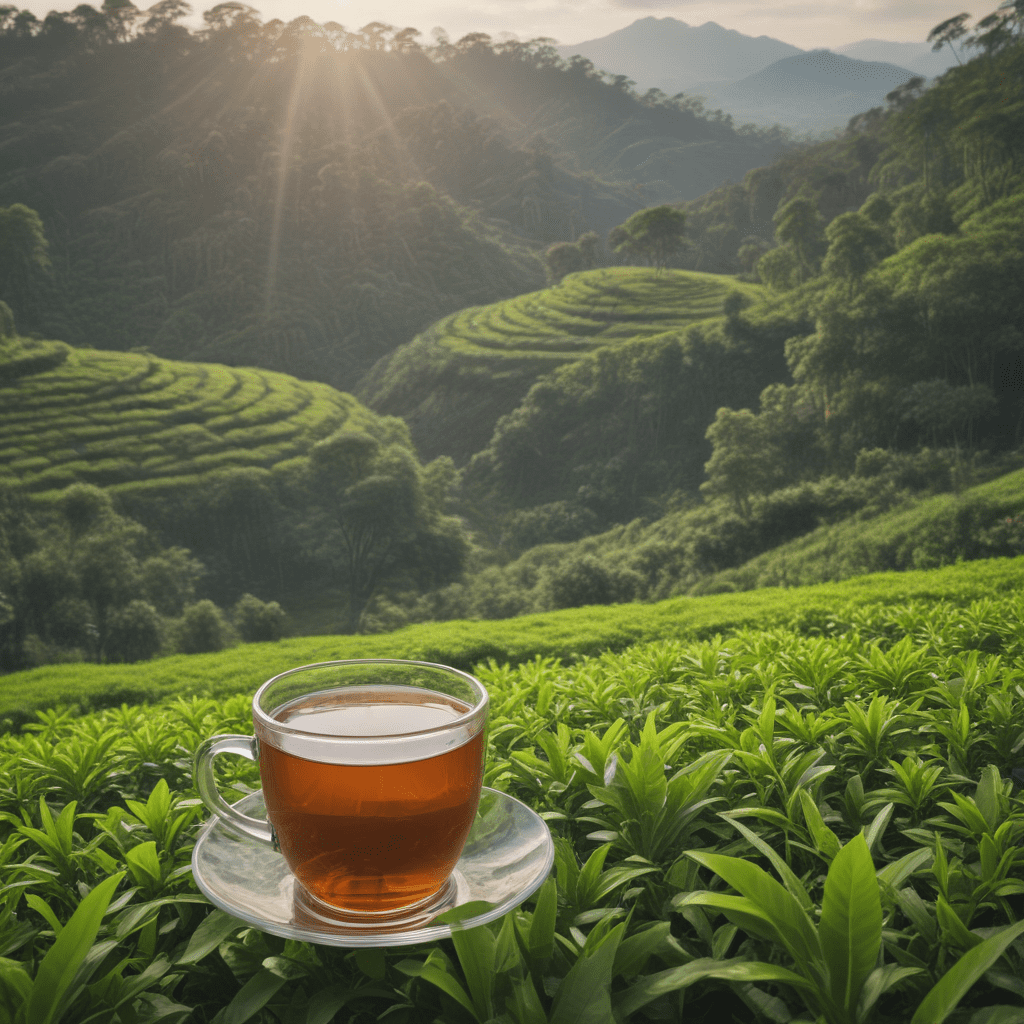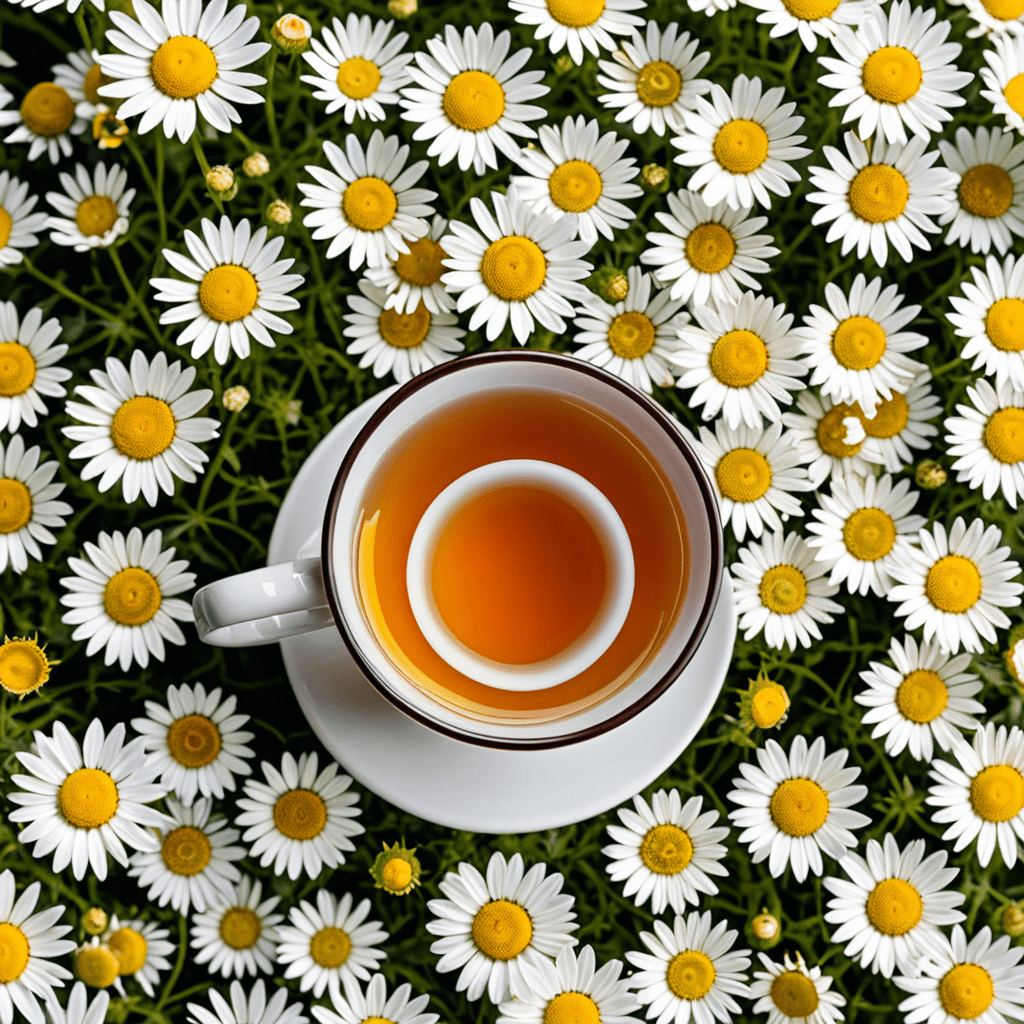Introduction to Chai Tea: An Overview
Chai tea, a renowned beverage originating from the Indian subcontinent, holds a significant place in global tea culture. Its captivating blend of aromatic spices, robust black tea, and sweet undertones has captivated tea enthusiasts worldwide. Chai tea is not merely a beverage; it's a cultural symbol, a comforting ritual, and an embodiment of warmth and hospitality.
Historical Origins and Cultural Significance of Chai Tea
Chai tea's roots trace back to the ancient spice trade routes of India. It is believed that chai originated as a medicinal concoction, with its blend of spices offering various health benefits. Over time, chai tea evolved into a social staple, a beverage shared within families and communities, fostering bonds and strengthening relationships. Today, chai tea has transcended its Indian origins, becoming a cherished beverage enjoyed across continents.
Composition and Ingredients of Chai Tea
The characteristic flavor and aroma of chai tea stem from its unique blend of spices. Traditional chai recipes incorporate a combination of cardamom, cinnamon, ginger, cloves, peppercorns, and nutmeg. Black tea serves as the base, providing a robust foundation for the symphony of spices. Milk and sugar are often added to enhance the tea's richness and sweetness. Variations in the spice blend, tea selection, and milk type contribute to the diversity of chai tea experiences.
The Science Behind Chai Tea's Relaxing Properties
Chai tea's reputation as a relaxing beverage is well-founded in scientific evidence. The blend of spices used in chai tea contains bioactive compounds that exert calming effects on the body and mind. Gingerol, a compound found in ginger, possesses anti-inflammatory properties that can alleviate muscle tension and promote relaxation. Cinnamon, another key ingredient, has been shown to reduce cortisol levels, the hormone associated with stress. Furthermore, the warmth of the tea itself can provide a soothing and comforting experience, conducive to relaxation.
The Effects of Chai Tea on Stress and Anxiety
The calming properties of chai tea extend to its ability to mitigate stress and anxiety. The combination of spices in chai tea, including cardamom, cinnamon, and ginger, has been shown to reduce feelings of tension and promote a sense of tranquility. Studies have indicated that regular consumption of chai tea can help lower stress levels and improve mood.
Chai Tea as an Aid for Sleep and Relaxation
Chai tea's relaxing effects can contribute to improved sleep quality and enhanced relaxation. The presence of theanine, an amino acid found in tea leaves, promotes a state of calmness and relaxation. Additionally, the warmth of the tea can have a soothing effect, aiding in the transition to sleep.
Choosing the Right Chai Tea Blend for Relaxation
When selecting a chai tea blend for relaxation, consider the following factors:
- Spice blend: Opt for blends that emphasize spices known for their calming effects, such as cardamom, cinnamon, and ginger.
- Tea base: Choose black tea blends with a lower caffeine content to minimize any potential sleep interference.
- Additives: Avoid blends with excessive sugar or sweeteners, which can disrupt relaxation efforts.
Preparing Chai Tea for Maximum Relaxation Benefits
To maximize the relaxing benefits of chai tea, follow these preparation tips:
- Use whole spices: Grind whole spices fresh for optimal flavor and potency.
- Steep for an extended period: Allow the chai tea to steep for 8-10 minutes to fully extract the beneficial compounds from the spices.
- Add honey or jaggery: Sweeten your chai tea with natural sweeteners like honey or jaggery, which have less of an impact on relaxation compared to refined sugar.
Potential Side Effects and Precautions Related to Chai Tea
While generally regarded as safe, chai tea consumption should be approached with caution in certain cases:
- Caffeine sensitivity: Individuals sensitive to caffeine may experience difficulty sleeping or increased anxiety after consuming chai tea.
- Pregnancy and breastfeeding: The safety of chai tea during pregnancy and breastfeeding has not been extensively studied. Consult a healthcare professional before consumption.
- Drug interactions: Chai tea may interact with certain medications. Consult a healthcare professional if you are taking any medications.
Conclusion: The Role of Chai Tea in Promoting Relaxation and Well-being
Chai tea has emerged as a popular beverage for relaxation and well-being. Its blend of spices, combined with the warmth and comfort it provides, contributes to its calming effects. When consumed in moderation and with proper preparation, chai tea can be an effective aid for stress relief, anxiety reduction, sleep enhancement, and overall relaxation.
FAQs
Q: How often can I drink chai tea for relaxation?
A: Enjoy chai tea in moderation, limiting consumption to 2-3 cups per day to avoid excessive caffeine intake.
Q: What is the best time to drink chai tea for relaxation?
A: Sip on chai tea in the evening or before bedtime to promote relaxation and support a restful night's sleep.
Q: Can I make chai tea at home?
A: Yes, preparing chai tea at home is easy. Combine spices, black tea leaves, milk, and sweetener in a saucepan and simmer for a few minutes.
Q: What are some alternatives to chai tea for relaxation?
A: Other herbal teas with calming properties include chamomile, lavender, and valerian root tea.


